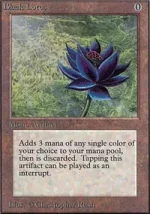I don't think D&D or Traveller were aimless at all. I do think most 90s era design was. L5R (before 5th edition)
L5R had a pretty clear intent, and there was more intent in it to those three playstyles than many give credit for. The thing is, one has to be familiar with what its intent to emulate is to see it.
It was intended for the kind of action in Japanese "Pillow Books" - a romanticized samurai story genre, fiction from the era of the samurai. It tended to focus on courtiers and on bushi. Basically, if you film them, they're what samurai of the 16th-18th C would put in soap operas. But, as for playability, the idea of the detectives of the setting, the magistrates, are the second goal. And, because John is a seriously hard core fan of CoC and the Cthulhu Mythos, he added the horror of wall duty, and then, possibly as a nod to Pendragon, a pendragon-like manor system and battle system. Battles, and their after-effects on the samurai, are a part of the Pillow Book genre, as well... the land holding seems to have been because players would want to rise to be daimyō... and he felt that reasonable.
The creation of the great clans serves to create a texture for court, given the lack of species other than humans as PCs in 1st edition. (late in 1st ed, 2 playable non-humans are added: Nezumi (rat-men) and Naga (snake-people with big magic)... Each is specialized slightly for its role in the Empire. Each family for its role in the clan.
It's probably John's truest magnum opus. Later editions, and indeed, first edition's splats, fleshed out the game to be more simulationist; until 5th, 3rd, the most complex, was my favored; not being into the card game, and not liking the setting changes Gold imposed, and not liking the simplifications of 4th ed... well, I mostly skipped 4th.
5th was a redesign from scratch. I've had players who used a conversion mat and normal d6 and d12 with only minor slowdowns during the playtest. It refocuses on the same core conceits: Wall service, inter-clan warfare, court intrigue, and magistrate duty.
It's worth noting as well: The L5R 5th starter set sets up the players to be magistrates... and none of the characters are trained specifically for that duty. The extended tests are a pain to run; they're reimplimented from the same test in 1st ed. The Gempukku tests... hint: cut the number of them in half.
The follow-on is another magesterial mystery, with them being put on the task officially... I've had it go wonky every time, but always starts a good set of ideas.
The honor and glory systems are pretty similar throughout - even 5th is largely the same as 1st⋯4th. If actually used, they provide feedback to players about how well they're doing. They're intentional design specifically to use behavior modification techniques on players.
There's a huge whack of intent. What it lacks is good adventures to give one the gist of how such should run.
5th has good adventures - even if one doesn't run them, they provide ideas on how to run the setting...




